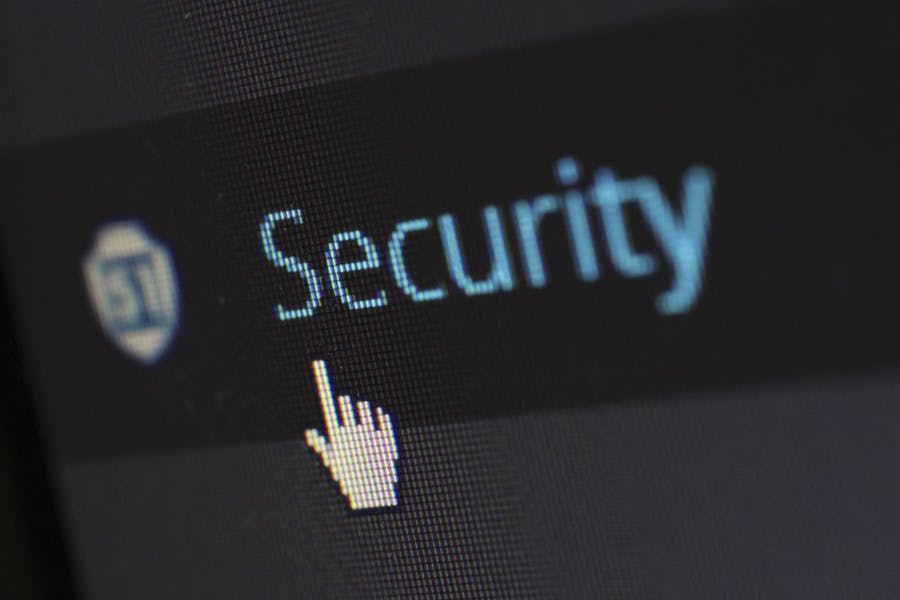Cyber threats are everywhere—and growing smarter by the second. In a world where one breach can ruin a business, what makes a good cybersecurity professional isn’t just technical know-how—it’s a potent mix of instincts, intelligence, and integrity.
These professionals are more than system guardians—they’re digital warriors trained to outsmart hackers, protect sensitive data, and stay ahead of evolving threats. They possess the perfect blend of analytical thinking, technical mastery, ethical decision-making, and relentless curiosity.
Whether you’re planning a cybersecurity career or hiring someone to safeguard your organization, understanding what makes a good cybersecurity professional is no longer optional—it’s essential.
In this guide, we break down the traits, certifications, skills, and mindsets that define top-tier cyber experts. You’ll discover the “why,” “how,” and “when” behind cybersecurity success—and learn what truly separates average defenders from elite professionals.
Get ready to explore what it takes to become a standout cybersecurity professional in a digital age that never sleeps.
What makes a good cyber security professional?
A good cybersecurity professional combines technical expertise, problem-solving skills, ethical responsibility, and strong communication skills. They stay updated on emerging threats, act proactively, and think like attackers to build resilient defenses. Certifications, curiosity, and adaptability also set them apart in this ever-evolving field.
The Building Blocks of Cyber Security Excellence
Excelling in cybersecurity demands far more than just technical proficiency. It requires a sharp mindset, unwavering focus, and a genuine curiosity about how systems work—and how they can be breached. At the heart of what makes a good cybersecurity professional is the ability to think several steps ahead. These experts don’t just respond to threats—they predict and prevent them.
Top cybersecurity professionals are critical thinkers who remain composed and level-headed under pressure. They thrive in high-stakes situations such as data breaches or ransomware attacks, making decisions with clarity and speed. Their curiosity often drives them to research late into the night, uncovering new vulnerabilities before they can be exploited.
While technical expertise is foundational, it’s only one part of the puzzle. A good cybersecurity professional must also clearly communicate risks to non-technical stakeholders, bridging the gap between IT and business. These qualities are often what earn someone a good name for trustworthiness and reliability within their organization.
Ultimately, what makes a good cybersecurity professional is their commitment to continuous learning, proactive defense, and ethical responsibility. They’re not just reacting to the digital world—they’re actively securing its future.
Why Does Cybersecurity Require More Than Just Technical Skills?
Many assume that cybersecurity is all about coding, firewalls, and penetration testing. But in reality, what makes a good cybersecurity professional goes well beyond technical knowledge. Soft skills, strategic thinking, and ethical decision-making are just as vital in today’s cybersecurity roles.
The Importance of Communication and Collaboration
Cybersecurity professionals don’t work in silos. They must communicate technical risks clearly to executives, legal teams, and non-technical departments. This requires the ability to translate complex issues into business language and collaborate effectively across departments to create secure environments.
Risk Management & Strategic Thinking
A good cybersecurity professional doesn’t just react to threats—they evaluate risk strategically. Understanding which vulnerabilities could disrupt core business functions allows them to prioritize and respond with impact-driven decisions.
Ethical Responsibility and Trust
Handling sensitive information means working with integrity. Cybersecurity experts are trusted to maintain confidentiality and comply with laws and ethical standards, which play a massive role in shaping a company’s reputation and resilience.
Decision-Making Under Pressure
In crises—such as data breaches or malware outbreaks—quick, rational thinking becomes crucial. A cybersecurity professional must remain calm, assess the threat, and respond efficiently to protect data and infrastructure. These traits truly define professional excellence.
What Are the Key Skills That Define a Cybersecurity Expert?
When it comes to what makes a good cybersecurity professional, technical skills play a crucial role. Beyond soft skills and ethics, these professionals need hands-on expertise across various domains. Below are the essential skills that define a top-tier cybersecurity expert:
- Network Security Knowledge: Understanding how systems interact and identifying weak points in network communication is fundamental to defense.
- Incident Response Planning: Professionals must know how to detect, respond to, and recover from security breaches in real-time.
- SIEM & Monitoring Tools: Experience with platforms such as Splunk, QRadar, or ArcSight is crucial for analyzing logs and identifying threats.
- Coding & Scripting Abilities: Skills in Python, Bash, or PowerShell help automate repetitive tasks and identify vulnerabilities more efficiently.
- Penetration Testing Mindset: Ethical hacking and red teaming allow professionals to test defenses and strengthen weak spots before attackers strike.
- Cloud Security Expertise: As businesses move to the cloud, knowledge of AWS, Azure, or GCP security settings is indispensable.
These skills form the technical foundation of what makes a good cybersecurity professional today.
When Should You Start Building Cybersecurity Skills?
Becoming a cybersecurity expert doesn’t happen overnight. It takes commitment, early exposure, and hands-on practice. If you’re wondering what makes a good cybersecurity professional, the journey often starts long before the first job offer. Here’s when and how to begin:
- During Formal Education: Start as early as high school or college by pursuing degrees in computer science, cybersecurity, or IT-related fields.
- With Online Courses and Certifications: Enroll in programs like CompTIA Security+, CEH, or CISSP to gain foundational and specialized knowledge.
- By Engaging with Cybersecurity Communities: Join forums, Discord groups, or Reddit threads to network, ask questions, and stay informed about industry developments.
- Through Internships or Entry-Level Jobs: Begin in roles such as IT support or system administration to gain technical experience and exposure to real-world scenarios.
- By Practicing in Labs and Simulations: Use platforms like Hack The Box or TryHackMe to test your skills in simulated attack and defense environments.
Starting early and being consistent are significant parts of what makes a good cybersecurity professional.
How Do You Keep Up in the Fast-Changing Cybersecurity World?
The cybersecurity landscape evolves at a rapid pace, and staying ahead of threats is a key aspect of what makes a good cybersecurity professional. Continuous learning, community engagement, and adaptability are non-negotiable for success.
Continuous Learning and Certifications
Earning certifications like CISSP, OSCP, or GIAC is a great way to validate your expertise. These credentials demonstrate your commitment to staying current with the industry and mastering the latest tools and techniques.
Following Industry News and Threat Feeds
Reading cybersecurity blogs, subscribing to threat intelligence platforms, and utilizing tools like Feedly enable professionals to stay informed about trends, vulnerabilities, and attack patterns before they become widespread.
Participation in CTFs and Ethical Hacking
Events like Capture the Flag (CTF) and red team/blue team competitions provide hands-on experience under pressure. These gamified challenges not only build confidence but also develop practical skills.
Developing a Learning Routine
Setting aside regular time each week to explore new tools, test labs, or read white papers helps maintain a sharp edge in your skill set.
Networking with Professionals
Joining LinkedIn groups, Discord communities, or attending industry conferences like DEFCON allows you to learn from peers, gain mentorship, and share insights.
Together, these habits reinforce what makes a good cybersecurity professional truly exceptional in a constantly shifting threat landscape.
Final Thoughts
Ultimately, what makes a good cyber security professional goes far beyond certifications or technical jargon. It’s about being proactive, thinking critically, and navigating threats with both logic and integrity. A great cybersecurity expert anticipates problems before they arise, communicates clearly with both technical and non-technical teams, and upholds the highest ethical standards.
These individuals are constantly learning, evolving, and sharpening their skills in response to a rapidly changing digital world. They don’t just defend systems—they strengthen them with every challenge they face. Whether you’re looking to build a cybersecurity career or hire someone to protect your infrastructure, these core traits define a true digital defender who’s prepared for anything the cyber world throws their way.
FAQ’s
What is the most essential skill for a cybersecurity professional?
While a range of skills is essential, critical thinking and the ability to anticipate threats are vital. These help professionals act proactively and neutralize risks early.
Do I need a degree to work in cybersecurity?
A degree can be helpful, but it’s not mandatory. Many employers prioritize hands-on experience, industry certifications, and demonstrated problem-solving ability over formal education.
How long does it take to become a cybersecurity expert?
It typically takes 2 to 5 years of consistent learning, certifications, and job experience to achieve an expert level, depending on your background and level of dedication.
Are certifications like CISSP or CEH worth it?
Yes, both are widely recognized in the industry. They validate your expertise, improve job prospects, and are often required for leadership or specialized roles.
Can cybersecurity be self-taught?
Absolutely. Many successful professionals are self-taught through online courses, labs, and real-world practice, proving skills without a traditional degree path.







